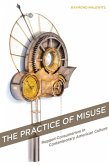A literary and cultural history of coral-as an essential element of the marine ecosystem, a personal ornament, a global commodity, and a powerful political metaphor Today, coral and the human-caused threats to coral reef ecosystems symbolize our ongoing planetary crisis. In the nineteenth century, coral represented something else; as a recurring motif in American literature and culture, it shaped popular ideas about human society and politics. In Coral Lives, Michele Currie Navakas tells the story of coral as an essential element of the marine ecosystem, a cherished personal ornament, a global commodity, and a powerful political metaphor. Drawing on a wide range of sources, including works by such writers as Sarah Josepha Hale, Harriet Beecher Stowe, Frances Ellen Watkins Harper, and George Washington Cable, Navakas shows how coral once helped Americans to recognize both the potential and the limits of interdependence-to imagine that their society could grow, like a coral reef, by sustaining rather than displacing others. Navakas shows how coral became deeply entwined with the histories of slavery, wage labor, and women's reproductive and domestic work. If coral seemed to some nineteenth-century American writers to be a metaphor for a truly just collective society, it also showed them, by analogy, that society can seem most robust precisely when it is in fact most unfree for the laborers sustaining it. Navakas's trailblazing cultural history reveals that coral has long been conceptually indispensable to humans, and its loss is more than biological. Without it, we lose some of our most complex political imaginings, recognitions, reckonings, and longings.
Dieser Download kann aus rechtlichen Gründen nur mit Rechnungsadresse in A, D ausgeliefert werden.









